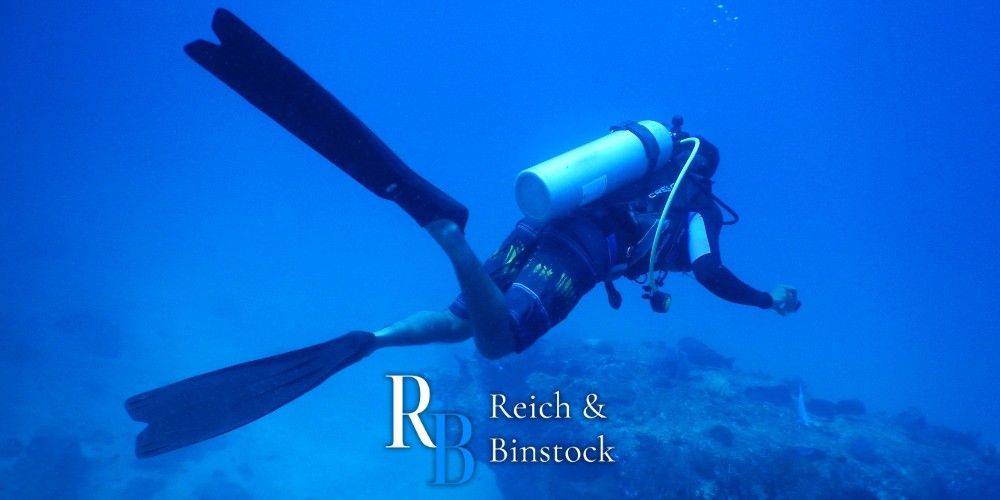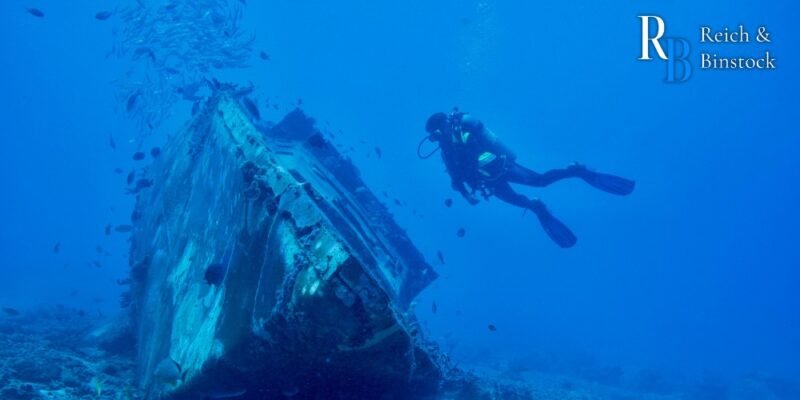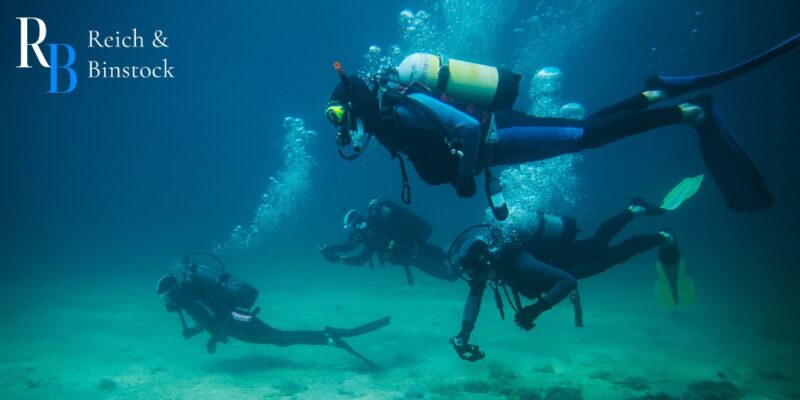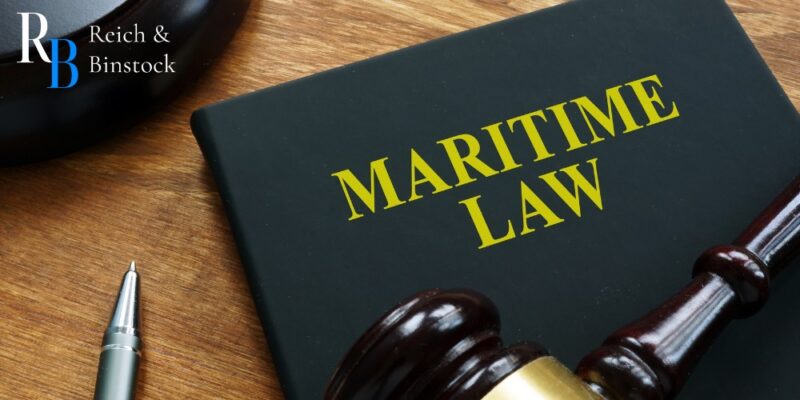Commercial and Recreational Diving Accidents
PRACTICE AREAS
Top Houston Dive Boat Accident Lawyers

In coastal areas, recreational and scuba diving are extremely popular activities. With the right safety features in place, recreational divers and scuba divers can enjoy the amazing sights of the open water. However, many dive boat tours and operators put their profits over the safety of the divers. Deep diving companies are responsible for ensuring the safety of their divers. When they fail to do so, they may be held liable for any diving accidents that occur.
Negligence in operating or maintaining boats and diving equipment can lead to serious injuries for divers, passengers, and crew members. If someone’s negligence results in injury to another person, they may be held liable for the damages. If you or someone you love has been injured in a dive boat accident, contact the boat accident lawyers at Reich & Binstock as soon as possible. To schedule your free consultation with our team, please call our office at 713-622-7271 today.
How Do Dive Boat Accidents Happen?
In many cases, dive boat accidents happen as a result of negligence. Recreational and commercial diving are activities that require strict adherence to all best safety practices. If someone exhibits negligence, poor judgment, or failure to maintain equipment, this could lead to injury or wrongful death. Several potential causes of dive boat accidents exist, including the following preventable causes.
- Poorly maintained dive boat or diving equipment
- Dangerous conditions of the water
- Inadequate dive safety training
- Not having enough air
- Departing without recovering all divers
- Procedural diving errors
Common Types of Dive Boat Accidents
Although commercial diving and recreational diving are different in many ways, they often involve similar types of accidents. Commercial divers may be involved in underwater welding accidents, while recreational divers may suffer from poorly maintained equipment. Some of the most common types of diving accidents include the following.
Dive Boat Fires
Fires and explosions are a concern for both recreational and commercial divers. Dive boat fires and underwater explosions have the potential to cause very severe injuries, or even death. For this reason, it is crucial for every diver and crew member to follow all safety protocols. If flammable or explosive materials are handled improperly, this could increase the risk of a dive boat fire. Explosions can also occur when underwater welding equipment is poorly maintained or improperly calibrated.
Drowning Accidents
Drownings can happen for a number of reasons, including equipment malfunction, equipment damage, poor buoyancy control, and more. If a commercial or scuba diver has poorly maintained equipment, they may be involved in a drowning accident.
Recreational Diving Accidents
Recreational diving and commercial diving are very different. Many recreational diving accidents occur due to negligence from the crew or the operator of the dive boat. It is extremely important for operators to properly maintain their equipment and their vessels. Failure to do so could result in serious injury to the divers and liability for the incident.
Commercial Diving Accidents
In commercial diving, the divers face far more dangerous conditions than recreational divers. For instance, many commercial diving occupations require working with dangerous equipment, in low visibility conditions, often around toxic chemicals. Some of the most common injuries to commercial divers include air embolism, gas narcosis, dysbarism, and much more. Failure to adhere to all safety procedures could result in serious injury to the diver.
What Are the Most Common Diving Injuries?
Commercial and recreational diver injuries are separated into two main categories: diving injuries and equipment injuries. Diving injuries result from the diving environment and include injuries such as the following.
- Nitrogen narcosis
- Hypothermia
- Drowning accidents
- Decompression sickness
- Dysbarism
- Pressure injuries
- Gas poisoning
- Toxic exposure
Equipment-related injuries often arise due to poor maintenance or malfunctions. Examples of equipment-related injuries include the following.
- Injuries from impact with the dive boat or the dive boat propeller
- Improper decompression table injuries
- Burn injuries or explosions from underwater welding
Health Risks Associated with Diving
Certain serious medical conditions are frequently associated with recreational and scuba diving. Two of the most prominent conditions include dysbarism and decompression sickness.
Dysbarism
Dysbarism refers to medical conditions that result from changes in ambient pressure surrounding divers. Examples of dysbarism include nitrogen narcosis, barotrauma, and high-pressure neurological syndrome. Although it most often occurs in scuba diving settings, it can also occur during commercial diving. One of the most common injuries to divers is middle ear barotrauma, which is trauma to the ear that results from pressure differences between the middle and outer ear.
Decompression Sickness
Decompression illness is also a form of dysbarism. When a diver ascends too quickly, the rapid decompression of the tissues in the body can cause nitrogen bubbles to form in these tissues. This can lead to pain, cramping, nausea, and even paralysis. It is also known as “the bends” or generalized barotrauma.
How Can Maritime Law Affect Liability in Your Case?
According to the Limitation of Liability Act of 1851, owners of vessels can only be held liable for damages up to the value of their ship. Unfortunately, many commercial vessel owners use the Act to avoid liability for injuries and deaths that occur at sea. Many divers and their families do not get the full compensation they deserve when companies cite this Act in their defense.
The Houston maritime attorneys at Reich & Binstock have considerable experience in litigating maritime cases. With our decades of experience, we have what it takes to ensure they are held accountable for their negligence. We will fight tooth and nail to recover full and fair compensation on your behalf.
Commercial Diving Regulations from OSHA
Diving is an innately dangerous activity and occupation, but OSHA still sets strict rules for employers to ensure the safety of their divers. For example, all divers must have adequate training and preparation before using any tools or equipment. It is also crucial that employers train all employees on the proper diving techniques and emergency procedures. If an employer fails to train their employees or fails to follow the required safety procedures, they could be held liable for any injuries that occur.
Contact a Dive Boat Accident Lawyer at Reich & Binstock Today
If you or someone you love suffered injuries in a diving accident, you may be eligible for financial compensation. Although diving is innately more dangerous than many other occupations, employers and co-workers must follow all safety regulations. They must also maintain their equipment and vessels properly. Failure to follow any safety procedures at any point could lead to the injury or death of a diver. In this case, all negligent parties may be held accountable. To schedule a free consultation with our Houston personal injury attorneys, please call our office at 713-622-7271 today.






